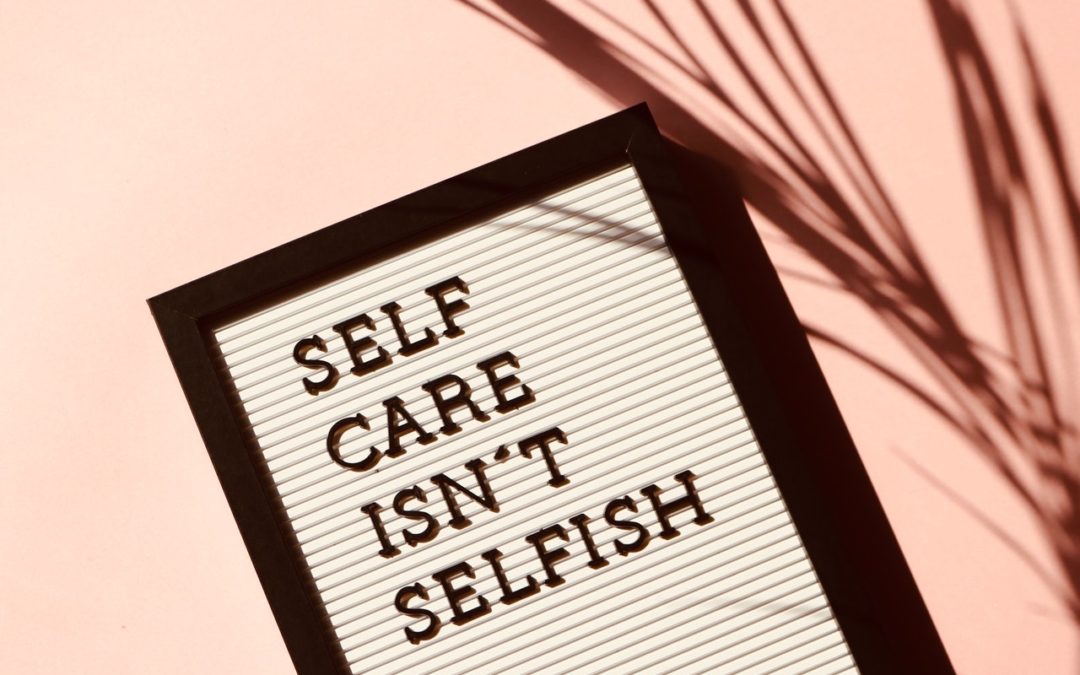The sudden quarantine, beginning around the middle of March caused by the Coronavirus, created a panic for some. Many found themselves trying to determine what they should purchase and which errands to run prior to entering an uncertain amount of time remaining at home per state mandates. It has become obvious that self-care has never been more important to protect ourselves against unhealthy patterns and be sure we are regulating our emotions. We suggest close attention to these FIVE areas to insure a balanced lifestyle during this challenging time.
1. Balanced Eating.
Depression and anxiety can cause appetite loss or for some binge eating. If you are having trouble with balanced eating due to the changes in the schedule you were previously following, you may need to set an alarm every three hours to eat a small meal or a healthy snack. Recommended foods that are high fuel are eggs, yogurt, lean meat, raw greens, berries, and nuts. Cane sugar should be eaten in small amounts and replaced with stevia as a healthier sweetener choice. Comfort foods should be monitored and when consuming them portions should be measured to avoid eating large amounts unintentionally. Staying hydrated is also important. We suggest that you measure the ounces of water you are drinking to be sure you are consuming approximately half your body weight in ounces each day.
2. Good Sleep Regimen.
Creating a bedtime routine or using one that has already worked well is very important. Decrease or eliminate screen time 30 minutes prior to going to bed, especially news coverage or other content that may cause anxiety or frustration. For those having a difficult time sleeping since the quarantine began, the following suggestions may be helpful. An hour prior to bedtime take a warm shower or bath, read an enjoyable book, listen to calming instrumental music (music without lyrics allows the mind to rest), pray, meditate, practice mindfulness, and some may consider taking melatonin. Watch how much caffeine you are consuming as you may be more sensitive to it at this time. If sleep issues last for more than a week a doctor should be contacted.
3. Stay Connected but Not Too Connected.
Feeling isolated or disconnected is one of the biggest challenges for many, especially those who do not have access to social media and devices for teleconferencing. However, at times there can be an over exposure to social media which can cause challenges. People may begin comparing their life circumstances with others, creating further discouragement. Most people have access to watching the news for updates related to the virus and reopening the states, yet again an over exposure to this information can cause increased anxiety and despair. The key is creating balance each day by developing a to-do list of the activities you will engage in. Add social media and news into your schedule and hold yourself accountable to avoid overdosing on these communication tools.
4. Give Yourself a Break.
It is common for us to think the expectations we typically have for ourselves and others should remain the same, however, that is not the case. This can cause an increase in anxiety, depression, and anger. The Coronavirus has created the need for us to step back and look at our most basic needs, many things we generally take for granted. For this reason, we want to be sure that we lower our expectations to what is most appropriate and achievable each day under the circumstances we are experiencing. Reassess your goals, perhaps write new goals for this time, and give yourself praise for the little things because they matter.
5. Find Moments to Create.
You may have more time on your hands than you have had in quite some time. Perhaps your house is cleaner than it has been in years, or maybe it is a mess because you are homeschooling four children. Regardless of your situation finding time to be creative is incredibly therapeutic. Some ideas are to search Pinterest for DIY projects in which you have the supplies already in your home, color, draw, or paint, write a poem, or begin journaling, listen to your favorite music and write a new verse to that song, woodworking, create a collage using old magazines, scrapbooking or playdough. Create with your children and create on your own. Being creative allows us to learn, grow, and process the emotions we are experiencing.
For more information on developing a better balance during this time or to submit a specific question use our Contact Us tab and someone will get back to you.

